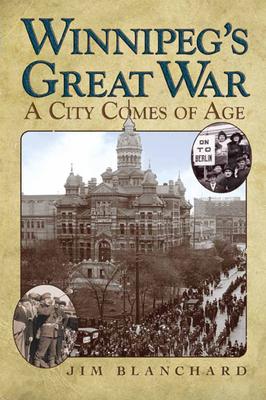From the local bestselling author of Winnipeg 1912 comes the riveting next chapter in the city's history. Winnipeg's Great War picks up in 1914, just as the city is regrouping after a brief economic downturn. War comes unexpectedly, thoughts of recovery are abandoned, and the city digs in for a hard-fought four years. Using letters, diaries, and newspaper reports, Jim Blanchard brings us into the homes and public offices of Winnipeg and its citizens to illustrate the profound effect the war had on every aspect of the city, from its politics and economy, to its men on the battlefield, and its war-weary families fighting on the home front. We witness the emergence of the city's social welfare services through the work of women's volunteer organizations; the political scandals that led to the fall of the Rodmond Roblin government; and the clash between independent jitneys and the city's private transit company. And we hear the conflicted emotions that echoed in the city's streets, from anti-foreign sentiment and labour unrest, to patriotic parades, and a spontaneous Victory Day celebration that refused to end. Through these stories, Blanchard reveals how these crucial years set the stage for the decades ahead, and how the First World War transformed Winnipeg into the city it is today.

From the local bestselling author of Winnipeg 1912 comes the riveting next chapter in the city's history. Winnipeg's Great War picks up in 1914, just as the city is regrouping after a brief economic downturn. War comes unexpectedly, thoughts of recovery are abandoned, and the city digs in for a hard-fought four years. Using letters, diaries, and newspaper reports, Jim Blanchard brings us into the homes and public offices of Winnipeg and its citizens to illustrate the profound effect the war had on every aspect of the city, from its politics and economy, to its men on the battlefield, and its war-weary families fighting on the home front. We witness the emergence of the city's social welfare services through the work of women's volunteer organizations; the political scandals that led to the fall of the Rodmond Roblin government; and the clash between independent jitneys and the city's private transit company. And we hear the conflicted emotions that echoed in the city's streets, from anti-foreign sentiment and labour unrest, to patriotic parades, and a spontaneous Victory Day celebration that refused to end. Through these stories, Blanchard reveals how these crucial years set the stage for the decades ahead, and how the First World War transformed Winnipeg into the city it is today.